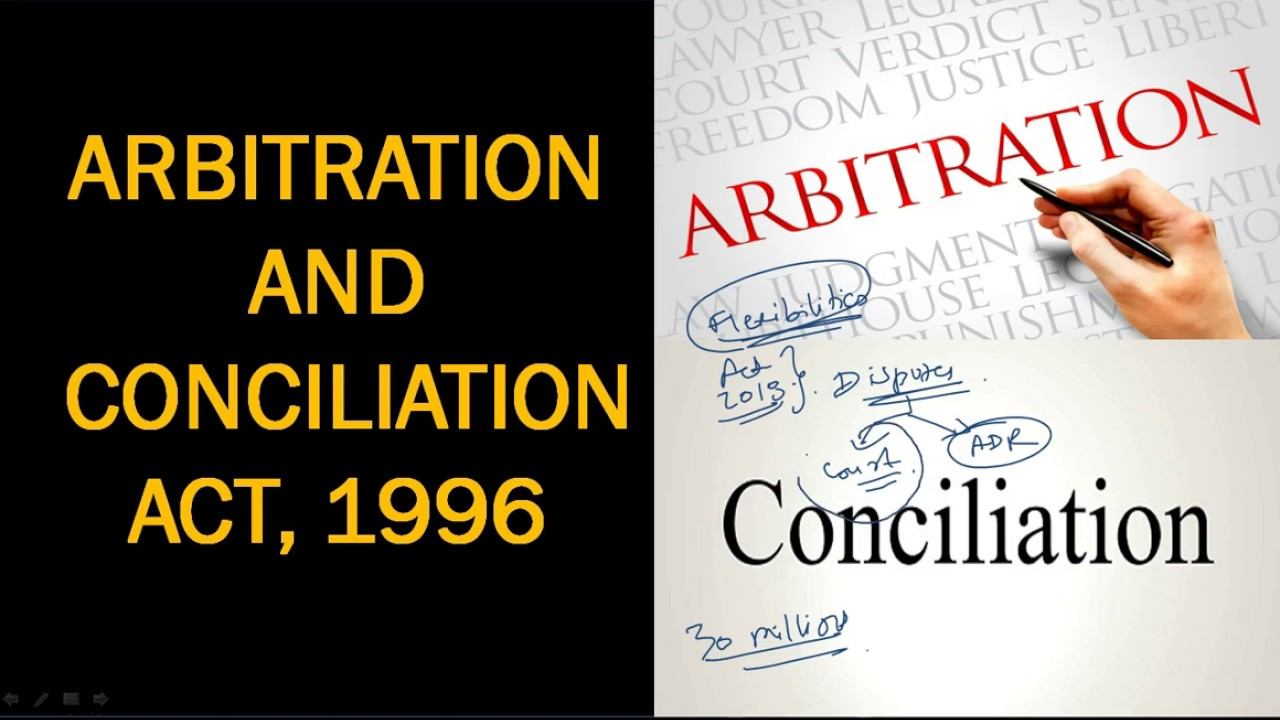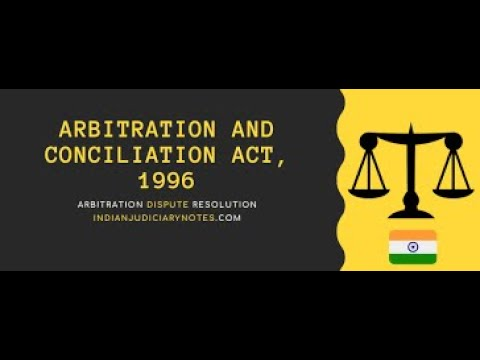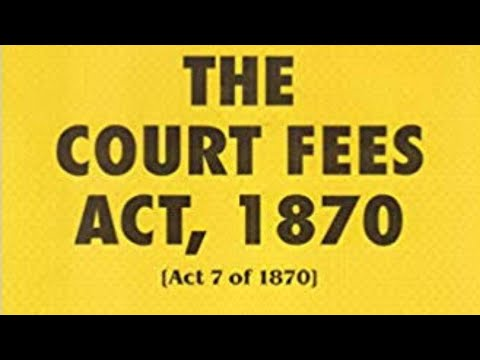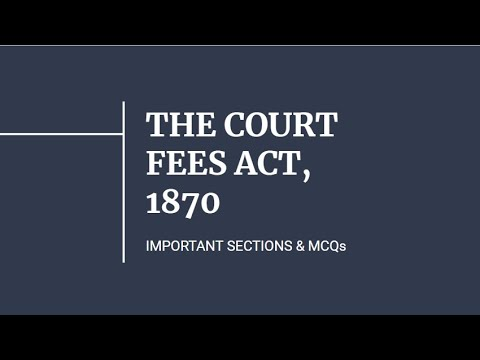LOCATION
OF Seat of Arbitration shall confer exclusive jurisdiction
The Arbitration &
Conciliation Act 1996 as amended and up to date have undergone periodic
changes. The 1996 Act itself remained a comprehensive Act in itself replacing
Arbitration Act of 1940. Onset of economic liberalization in 1990s had
presented a situation of complete overhaul of Arbitration process and law and
therefore the 1996 Act was in place. Several amendments in the 1996 Act was
carried out thereafter. The issue of jurisdiction of arbitral tribunal and the
courts remained a vexed issue. However, the same is no longer a vexed issue. The
arbitration proceedings have provided impetus
to the speedy resolution of disputes. The arbitration clause determines the
premise of arbitration and the ambit of arbitration. The interference of the
courts are minimal, in view of the object of speedy resolution of disputes. No
doubt, the role of courts in any case cannot be undermined, even if the role of
courts as stated is minimal. The same could also be borne out from the fact
that as per settled judicial precedents, the arbitral award, if published
cannot be set aside, if two plausible views were possible and even when the
view taken by the Arbitrator is less plausible. Still, the role of courts, even
though are for limited purposes, are still important, for, that provide safety
valve or adequate safeguards i.e in case the award is perceived as against
public policy or otherwise perverse. The judicial superintendence to the
aforesaid extent is therefore imperative.
The issue of jurisdiction of
courts and location of courts, where the matters of arbitral matters could be
raised are of pivotal importance. We know that Arbitral award once published
could be challenged before courts only on the limited premise, as indicated
above. It is also significant that the issue of jurisdiction is to be
determined by the Arbitral Tribunal itself u/s 16 of Arbitration &
Conciliation Act 1996 as amended and up to date. In case, the Arbitral Tribunal
rejects the objection as regards the jurisdiction of Arbitral Tribunal, the
same can be chall4nged before courts u/s 1996 Act, but, only after publication
of award and not before that. However, in case, the objection to jurisdiction
of Arbitral Tribunal is upheld by the Tribunal, then, the same could be
challenged before Courts by the aggrieved party or parties u/s 37 of
Arbitration & Conciliation Act 1996 as amended and up to date. Of course,
even the judgment passed by Courts u/s 34 of Arbitration & Conciliation Act
1996 is further appealable as per section 37 of the said Act.
Similarly, the Arbitral Tribunal
is empowered to pass injunction order u/s 17 of Arbitration & Conciliation
Act 1996, whether with regard to preserving subject matter of disputes or on
such relevant issues relating to arbitral disputes. The courts are also
empowered to pass appropriate orders for interim relief u/s 9 of the
Arbitration & Conciliation Act 1996. What is of significance in the context
is that section 9 of the said Act is generally invoked before invoking
arbitration clause or in case there are clear intention to invoke arbitration
clause. The interim order, if passed by the courts are stipulated purely of temporary
nature and once arbitration is invoked, the Arbitral Tribunal is competent to
pass the injunction order afresh and the interim order could be modified in the
facts by the Tribunal.
Let us now come to the second limb of the write up i.e in case of challenge of arbitral award u/s 34 of the Act or for invoking Section 9 or Section 37 of the said Act, what will be the jurisdictional location of courts? In this context, the Arbitral clause itself shall be of vital importance. What is to be seen is, whether, the exclusive jurisdiction is vested in a courts of particular location? What are the seat of Arbitration? Where the subject matter of the arbitral disputes is located? Before going further, it is also imperative to point out that the element of cause of action is to be ascertained as regards the cause of action and where the cause of action have arisen? It is no res integra that even while conferring exclusive jurisdiction as per arbitral clause, cause of action or part of it is to arise in that location, else, the exclusive jurisdiction clause in itself without cause of action shall be meaningless. If cause of action has not arisen in a particular location, even if exclusive jurisdiction is conferred in that place shall be of no value, since where cause of action have not arisen, even through agreement that cannot be conferred on a particular courts. In other words, ouster of jurisdiction of a court shall be contingent upon existence of cause of action or part of it in a particular place, else, the ouster clause shall have no applicability.
It
is held in Mcdermott International Inc
Vs Burn Standard Co. Ltd & Ors (2006)
11 SCC 181 that:
“112. It is trite that the terms of the contract
can be expressed or implied. The conduct of parties would also be relevant
factor in the matter of construction of a contract. The construction of the
contract agreement, is within the jurisdiction of the arbitrators having regard
to the wide nature, scope and ambit of the arbitration agreement and they
cannot, be said to have misdirected themselves in passing the award by taking
into consideration the conduct of the parties. It is also trite that
correspondence exchanged by the parties are required to be taken into
consideration for the purpose of construction of a contract. Interpretation of
a contract is a matter for the arbitrator to determine, even if it gives rise
to determination of a question of law”.
even if the property in
question is outside of seat of arbitration: Supervisory jurisidction of “seat”
remains intact
In the above reference, detailed analysis are
provided in a matter reported as Dipankar Singh & Ors Vs UOI Through
NHAI 265(2019) DLT 358. Hon’ble Justice V Kameshwar Rao of Delhi High
Court, while relying upon and referring
the following judgments:
(i)
Indus Mobile Distribution Pvt Ltd Vs
Datawind Innovations Pvt Ltd & Ors III(2017) BC54 (SC)
(ii)
Reliance Industries Limited Vs Union
of India V (2014) SLT 410
(iii)
Sundaram Finance limited Vs M.K Kurian
& Anr 2006 (1) CTC 433
(iv)
Pacific Greens Infracon Pvt Ltd Vs
Senior Builders Ltd 159 (2009) DLT 130
(v)
Jatinder Nath Vs Chopra land
developers (P) Ltd & Anr III(2007) SLT 441
(vi)
Harshad Chiman lal Modi Vs DLF
Universal Ltd & Anr VII (2005) SLT 240
The constitution bench judgment
in Bharat Aluminium Co. Vs Kaiser
Aluminium Technical Services Inc (2012) 9 SCC 552 has adverted to the issue
“seat” in some detail in para 96 of the
said judgment:
96. We are of the opinion that
“subject matter of the arbitration” cannot be confused with “subject matter of
the suit”. The subject matter in section 2
(1)(e) is confined to part I. It has a reference and connection with the
process of dispute resolution. Its purpose is to identify the Courts having
supervisory control over the arbitration proceedings. Hence, it refers to a
Court which would essentially be a Court of the seat of the arbitration
process. In our opinion, the Section 20 which gives recognition to party
autonomy…… In our view the legislature has intentionally given jurisdiction to
two courts i.e the Courts which would have jurisdiction where the cause of
action is located and the Courts where the arbitration takes place. This was
necessary as on many occasions the agreement may provide for a seat of
arbitration at a place which would be neutral to both the parties.. Therefore,
the Courts where the arbitration takes place would be required to exercise
supervisory control over the arbitral process. For example, if the arbitration
is held in Delhi, where neither of the parties are from Delhi (Delhi having
been chosen as a neutral place as between a party from Mumbai and the other
form Kolkata) and the Tribunal sitting in Delhi passes an interim order u/s 17
of the Arbitration Act 1996, the appeal against such an interim order u/s 17
must lie to the Courts of Delhi, being the Court of Supervisory jurisdiction
over the arbitration proceedings and the
Tribunal. This would be irrespective of the fact that the obligation to be
performed under the contract were to be performed either at Mumbai or at Kolkata and only
arbitration is to take place in Delhi. In such circumstances both the Courts would
have jurisdiction i.e the Courts where the subject matter of the suit is
situated and the Courts within the jurisdiction of which the dispute resolution
i.e arbitration is located.”
In Reliance Industries (Supra) case, in para no. 19, the hon’ble
Supreme Court has held as under:
“19. A conspectus of all the aforesaid provisions
shows that the moment the seat is designated, it is akin to an exclusive
jurisdiction clause. On the facts of the present case, it is clear that the
seat of arbitration is Mumbai and clause 19 further makes it clear that
jurisdiction exclusively vests in the Mumbai Courts. Under the law of
Arbitration, unlike the Code of Civil Procedure which applies to suits filed in
Courts, a reference to “seat” is a concept by which a neutral venue can be
chosen by the parties to an arbitration clause. The neutral venue may not in
the classical sense have jurisdiction-that is, no part of the cause of action
may have arisen at the neutral venue and neither would any of the provisions of
section 16 to 21 of the CPC to be attracted. In arbitration law however, as has
been held above, the moment “seat” is determined, the fact the seat is at
Mumbai would vest Mumbai Courts with exclusive jurisdiction for purposes of
regulating arbitral proceedings arising out of the agreement between the parties”.
The hon’ble Delhi High Court in Dipankar Singh (Supra) in para 13 has
therefore, summed up the issues based on the Supreme Court judgments. The
summary that emerges thus is recorded by the hon’ble High Court as under:
(i)
Subject
matter of Arbitration cannot be confused with the subject matter of the suit.
(ii)
The
purpose of Section 2(1) (e) of Arbitration & Conciliation act 1996 has to
be to identify the Courts having supervisory control over arbitration
proceedings. It refers to the Court of the seat of arbitration process.
(iii)
Section
2(1)(e) has to be read with Section 20 which gives recognition to party
autonomy.
(iv)
Legislature
has intentionally given jurisdiction to two Courts i.e (a Courts where cause of
action has arisen (b) Courts where arbitration takes place. This was necessary
as the agreement may provide for a seat which is neutral to both parties and
the Courts are to exercise supervisory control over the arbitration process.
(v)
The
moment the seat is designated, it is akin to an exclusive jurisdiction clause.
CONCLUSION
Thus, the position that has
emerged based on Bharat Aluminium (Supra)
judgment rendered by constitution bench and as also followed by Delhi High
Court in Dipankar Singh (Supra) that
where the seat of the arbitration as agreed by the parties, is situated, the
courts of that jurisdiction shall be competent to entertain challenge to the
award u/s 34 of Arbitration & Conciliation Act 1996 and matters arising out
of arbitration. That is so, as the
supervisory jurisdiction shall be vested in the said Court based on the
provisions as contained in Section 2(1) (e) of the Arbitration &
Conciliation Act 1996 and the judicial precedents evolved over the years.
--------------
Anil
K Khaware
Founder & Senior Associate
Societylawandjustice.com













